第123章 SOCIETIES AND PUBLIC BANQUETS(7)
Mr. Everett produced a ponderous mass of manuscript and began reading on the history of New England education and the influence upon it of the Cambridge School. He had more than an hour of material and lost his audience in fifteen minutes. No efforts of the chairman could bring them to attention, and finally the educator lost that control of himself which he was always teaching to the boys and threw his manuscript at the heads of the reporters. From their reports in their various newspapers the next day, they did not seem to have absorbed the speech by this original method.
Choate and I were both to speak, and Choate came first. As usual, he threw a brick at me. He mentioned that a reporter had come to him and said: "Mr. Choate, I have Depew's speech carefully prepared, with the applause and laughter already in. I want yours." Of course, no reporter had been to either of us. Mr. Choate had in his speech an unusual thing for him, a long piece of poetry. When my turn came to reply I said: "The reporter came to me, as Mr. Choate has said, and made the remark: 'I already have Choate's speech. It has in it a good deal of poetry.' I asked the reporter:
'From what author is the poetry taken?' He answered: 'I do not know the author, but the poetry is so bad I think Choate has written it himself.'"Mr. Choate told me a delightful story of his last interview with Mr. Evarts before he sailed for Europe to take up his ambassadorship at the Court of St. James. "I called," he said, "on Mr. Evarts to bid him good-by. He had been confined to his room by a fatal illness for a long time. 'Choate,' he said, 'I am delighted with your appointment. You eminently deserve it, and you are pre-eminently fit for the place. You have won the greatest distinction in our profession, and have harvested enough of its rewards to enable you to meet the financial responsibilities of this post without anxiety. You will have a most brilliant and useful career in diplomacy, but I fear I will never see you again.'"Mr. Choate said: "Mr. Evarts, we have had a delightful partnership of over forty years, and when I retire from diplomacy and resume the practice of the law I am sure you and I will go on together again for many years in the same happy old way."Evarts replied: "No, Choate, I fear that cannot be. When I think what a care I am to all my people, lying so helpless here, and that I can do nothing any more to repay their kindness, or to help in the world, I feel like the boy who wrote from school to his mother a letter of twenty pages, and then added after the end:
'P. S. Dear mother, please excuse my longevity.'"Where one has a reputation as a speaker and is also known to oblige friends and to be hardly able to resist importunities, the demands upon him are very great. They are also sometimes original and unique.
At one time, the day before Christmas, a representative of the New York World came to see me, and said: "We are going to give a dinner to-night to the tramps who gather between ten and eleven o'clock at the Vienna Restaurant, opposite the St. Denis Hotel, to receive the bread which the restaurant distributes at that hour."This line was there every night standing in the cold waiting their turn. I went down to the hotel, and a young man and young lady connected with the newspaper crossed the street and picked out from the line a hundred guests.
It was a remarkable assemblage. The dinner provided was a beautiful and an excellent one for Christmas. As I heard their stories, there was among them a representative of almost every department of American life. Some were temporarily and others permanently down and out. Every one of the learned professions was represented and many lines of business. The most of them were in this condition, because they had come to New York to make their way, and had struggled until their funds were exhausted, and then they were ashamed to return home and confess their failure.
I presided at this remarkable banquet and made not only one speech but several. By encouraging the guests we had several excellent addresses from preachers without pulpits, lawyers without clients, doctors without patients, engineers without jobs, teachers without schools, and travellers without funds. One man arose and said:
"Chauncey Depew, the World has given us such an excellent dinner, and you have given us such a merry Christmas Eve, we would like to shake hands with you as we go out."I had long learned the art of shaking hands with the public. Many a candidate has had his hands crushed and been permanently hurt by the vise-like grip of an ardent admirer or a vicious opponent.
I remember General Grant complaining of this, of how he suffered, and I told him of my discovery of grasping the hand first and dropping it quickly.
The people about me were looking at these men as they came along, to see if there was any possible danger. Toward the end of the procession one man said to me: "Chauncey Depew, I don't belong to this crowd. I am well enough off and can take care of myself.